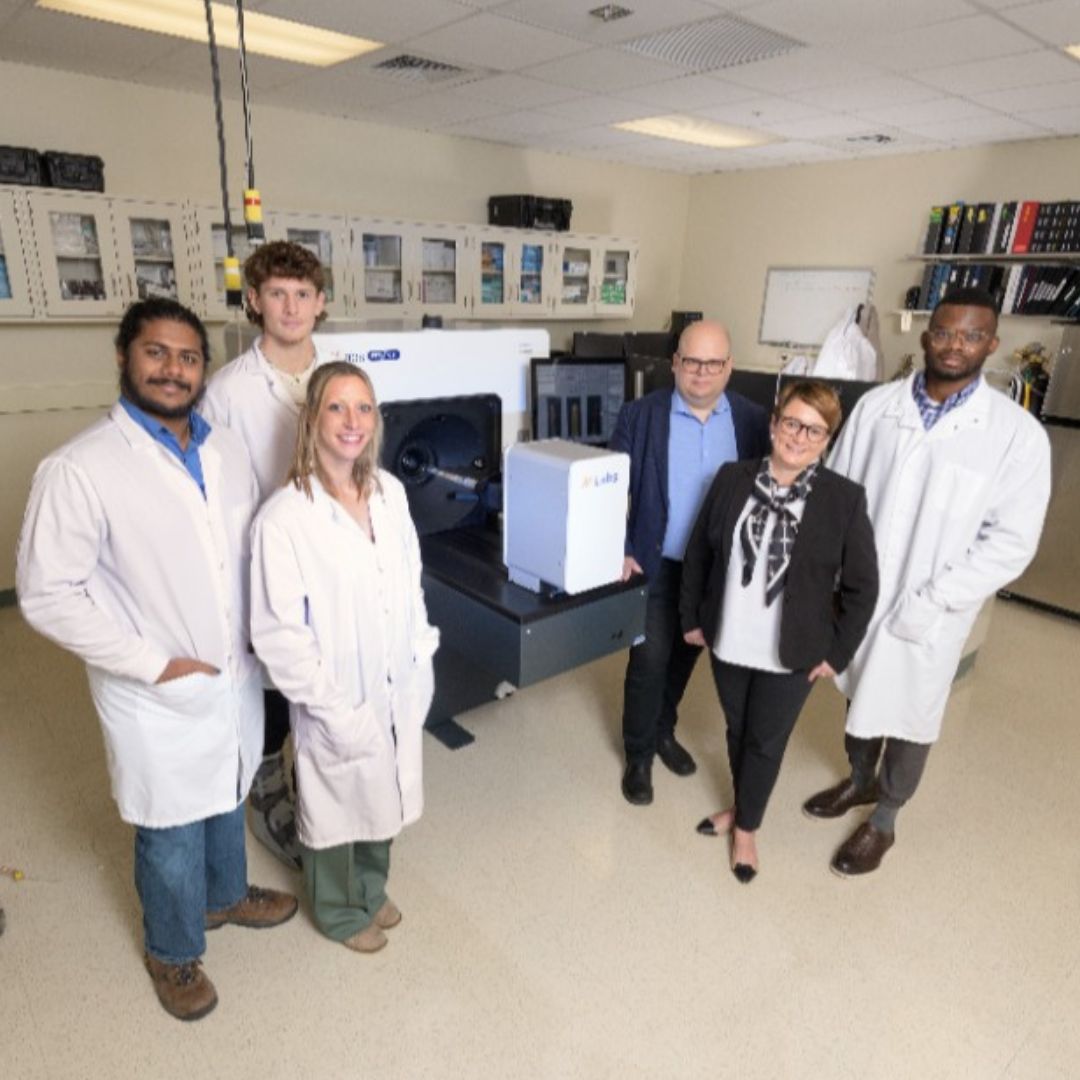The first step to strong interdisciplinary science is state-of-the-art instrumentation and facilities that push the limits of what researchers can achieve.
The Molecular Imaging Laboratory at the Beckman Institute for Advanced Science and Technology, with support from the Roy J. Carver Charitable Trust, has added to its imaging repertoire a new ultra-high-performance positron emission tomography and X-ray computed tomography scanner, opening new possibilities for cutting-edge research.
PET imaging is a highly sensitive method for imaging biological tissues and is widely recognized for its use in cancer detection and monitoring. It is clinically translatable and generates whole-body three-dimensional images that can quantify molecular changes in the body well before symptoms of the disease manifest.
PET-CT imaging is used to study cell dynamics in the brain, heart, and vascular system. The imaging system achieves this in several ways, including quantification of biodistribution of targeted imaging tracers, monitoring stem cells and extracellular vesicle function, and tracking metabolomics and other physiological processes.
The new U-PET7 scanner replaces an existing Siemens Inveon PET-SPECT-CT scanner, which was housed in the Molecular Imaging Laboratory for 13 years. This older system was, to date, the only small field-of-view nuclear imaging scanner within a 90-mile radius of the University of Illinois Urbana-Champaign. More than 20 interdisciplinary research groups on campus used it to support high-impact publications and funded research proposals.
However, today’s research demands require greater imaging sensitivity and resolution. The new ultra-high-performance PET-CT scanner will improve on the previous technology in several ways, including ultra-high spatiotemporal resolution, stationary detectors, and simultaneous multi-isotope PET imaging modalities.

From left: Researchers Michael Nelappana, Nicolas Dovalovsky, Catherine Applegate, CCIL researcher Wawrzyniec Dobrucki, Iwona Dobrucka, and Goodluck Okoro.
From developing novel imaging agents to assessing drug delivery systems and improving sub-cellular imaging, the PET-CT scanner will help researchers envision their projects in new ways. Research questions that can be probed with the new system include dynamic tracking of targeted tracer molecules, tracking homing pathways of stem cells and extracellular vesicles, metabolomics applications, and multimodal monitoring of disease progression allowing for optimized therapeutic intervention.
The new scanner is funded by the University of Illinois and the Roy J. Carver Charitable Trust. Funding from the Carver Trust was secured in fall 2022 through a collaborative effort between the Molecular Imaging Laboratory and Wawrzyniec Dobrucki, an associate professor of bioengineering.
“Apart from its exceptional spatiotemporal resolution and outstanding sensitivity, this modular system allows for easy upgrades to incorporate additional capabilities and imaging modalities, ensuring it aligns with the evolving research needs of Illinois investigators in the future,” Dobrucki said.
Research groups within and outside of the University of Illinois are encouraged to use the PET-CT scanner — and other resources in the Molecular Imaging Laboratory — for their research. Interested researchers are encouraged to contact MIL staff for consultation and collaboration.
In addition to initiating transformative interdisciplinary research projects, the new PET-CT scanner will ideally attract faculty hires to Beckman and help train the next generation of scientists through graduate- and post-doctoral-level instruction.
“Apart from drawing in new investigators, we’ve begun collaborating with various campus units, such as the Carle Illinois College of Medicine and the Department of Bioengineering, to create new educational resources and initiatives,” said Iwona Dobrucka, a senior research scientist in Beckman’s Biomedical Imaging Center and head of the Molecular Imaging Laboratory.
“These resources offer students and aspiring physician-scientists hands-on experience in nuclear molecular imaging and PET-CT technology.”
Editor’s notes:
The Roy J. Carver Charitable Trust, located in Muscatine, Iowa, is one of the largest private foundations in the state of Iowa. It was created through the will of Roy J. Carver, a Muscatine industrialist and philanthropist, and a 1934 graduate of The Grainger College of Engineering at the University of Illinois at Urbana-Champaign. The Carver Trust supports biomedical and scientific research, scholarships, and programs addressing the educational and recreational needs of youth.
Learn more about the Molecular Imaging Laboratory at the Beckman Institute: https://bic.beckman.illinois.https://bic.beckman.illinois.edu/molecular-imaging
Researchers interested in using the PET-CT scanner for their projects may contact the Molecular Imaging Laboratory at: dobrucka@illinois.edu
The original story, written by Kyle Shelton, can be found here.
